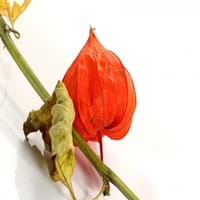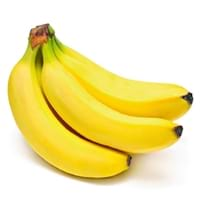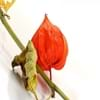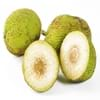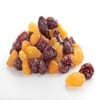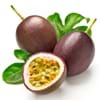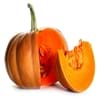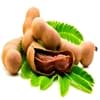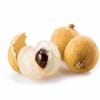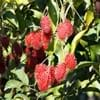Health Benefits
Anti-oxidant properties, Anti-inflammatory properties, Cancer prevention, Maintains healthy cholesterol level, Reduces blood circulation problems, Treatment of cough, fever & sore throat, Treatment of Hypertension
Cancer prevention, Diarrhea treatment, Muscle pain relief, Piles treatment, Prevents constipation, Skin cleansing, Ulcer treatment
General Benefits
Treatment of asthma, Treatment of cataract, Treatment of hepatitis, Treatment of macular degeneration, Treatment of neurodegenerative diseases
Controls blood pressure, Digestive aid, Maintains healthy cholesterol level, Strengthens bones
Skin Benefits
Treatment of Rheumatism & Dermatitis, Treatment of Skin Inflammation
Anti-aging benefits, Hydrates skin, Skin rejuvenation
Hair Benefits
Unknown
Prevents hair loss, Shiny hair, Softening mask
Allergy Symptoms
NA
Abdominal pains, Decrease in blood pressure, Dizziness, Hives, Itching of mouth, Lightheadedness, Swelling, Swelling of mouth, tongue or lips, Weak or racing pulse, Wheezing
Side Effects
Hypertension, Ventricular Tachycardia
Headache, Intense headache, Tooth decay
Best Time to Eat
As a snack in the late afternoon, Eat the fresh ones, avoid mixing with any other foods, don't eat after meal., Morning time (before lunch), Strictly avoid empty stomach
As a snack in the late afternoon, Don't consume at night and before bed, Eat the fresh ones, avoid mixing with any other foods, don't eat after meal.
Vitamin B5 (Pantothenic Acid)
Not Available
Vitamin B6 (Pyridoxin)
Not Available
Vitamin B9 (Folic acid)
Not Available
Vitamin C (Ascorbic Acid)
Vitamin K (Phyllochinone)
Not Available
Lutein+Zeaxanthin
Not Available
Phytosterol
Not Available
Water Content
Not Available
Calories in Fresh Fruit with Peel
Calories in Fresh Fruit without Peel
Not Available
Calories in Frozen Form
Not Available
Calories in Dried Form
Not Available
Calories in Canned Form
Not Available
Type
Fruit vegetable
Berry, Tropical
Season
Spring, Summer
All seasons
Varieties
Physalis franchetii, Physalis pruinosa, Physalis peruviana, Physalis heterophylla and Physalis philadelphica
Cavendish Bananas, Lady Finger Bananas, Pisang Raja, Williams Bananas and Cooking Bananas
Color
Bright Yellow, Orange
Green, Yellow
Inside Color
Orange
White
Shape
Round
Curving Cylinder
Origin
Chile, Peru
Papua New Guinea
Soil Type
NA
Well-drained
Climatic Conditions
NA
Warm
Facts about
NA
- As bananas contain potassium-40 which is radioactive isotope of potassium, bananas are radioactive.
- Bananas float in water.
- There are around 1000 varieties of bananas.
- Eating this fruit will cheer you up.
Other Countries
NA
Brazil, Cameroon, China, Colombia, Ecuador, Ghana, Indonesia, Philippines, Uganda
Top Importer
Netherlands
Europe
Top Exporter
Colombia
Ecuador
Botanical Name
Physalis Peruviana
Musa acuminata and Musa balbisiana
Synonym
Alkekengi, Herschellia & Pentaphitrum
Musa × dacca , Musa × sapidisiaca , Musa × sapientum
Subkingdom
Tracheobionta
Tracheobionta
Division
Magnoliophyta
Magnoliophyta
Class
Magnoliopsida
Liliopsida
Subclass
Asteridae
Liliidae
Order
Solanales
Zingiberales
Family
Solanaceae
Musaceae
Species
Physalis
M. acuminata , M. balbisiana
Generic Group
Not Available
Banana
Difference Between Physalis and Banana
We might think that Physalis and Banana are similar with respect to nutritional value and health benefits. But the nutrient content of both fruits is different. Physalis and Banana Facts such as their taste, shape, color, and size are also distinct. The difference between Physalis and Banana is explained here.
The amount of calories in 100 gm of fresh Physalis and Banana with peel is 77.00 kcal and 95.29 kcal and the amount of calories without peel is Not Available and 89.00 kcal respectively. Thus, Physalis and Banana belong to High Calorie Fruits and High Calorie Fruits category.These fruits might or might not differ with respect to their scientific classification. The order of Physalis and Banana is Solanales and Zingiberales respectively. Physalis belongs to Solanaceae family and Banana belongs to Musaceae family. Physalis belongs to Physalis genus of Physalis species and Banana belongs to Musa genus of M. acuminata , M. balbisiana species. Beings plants, both fruits belong to Plantae Kingdom.
